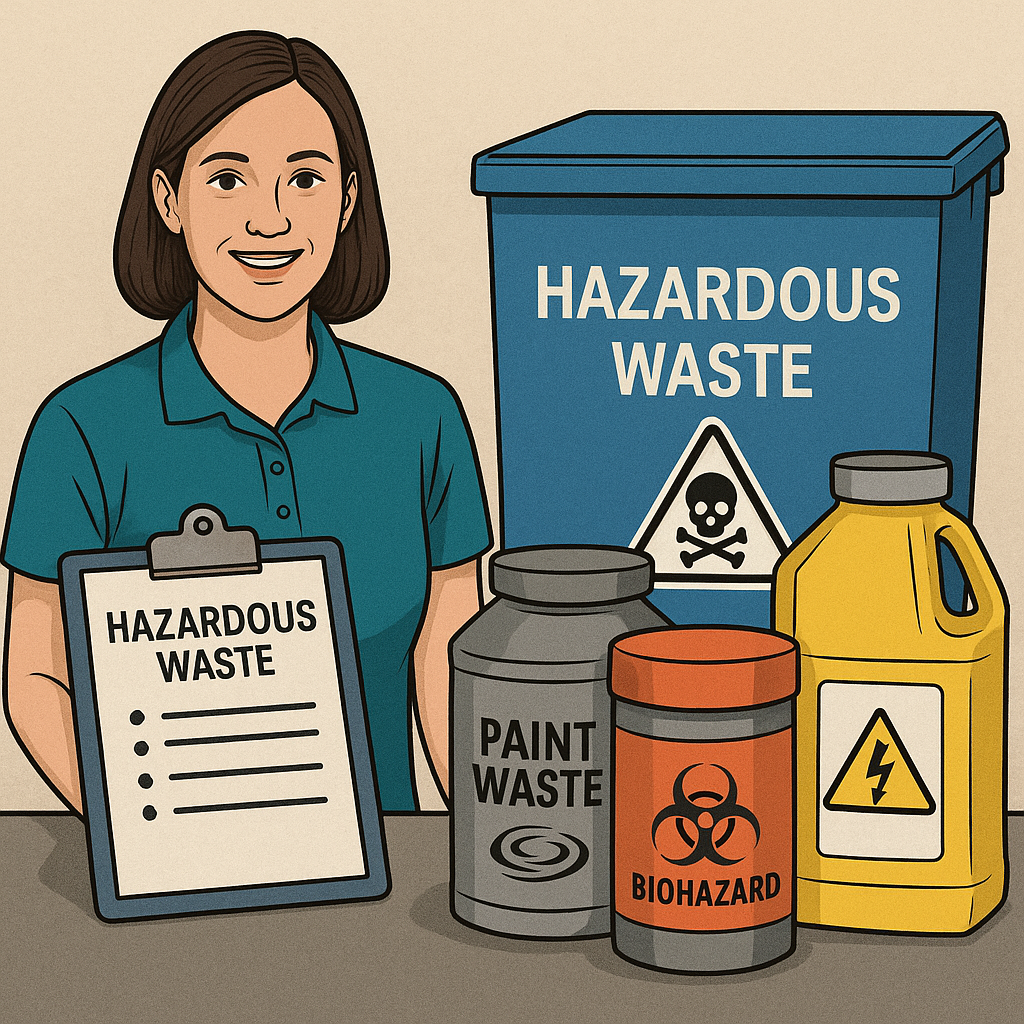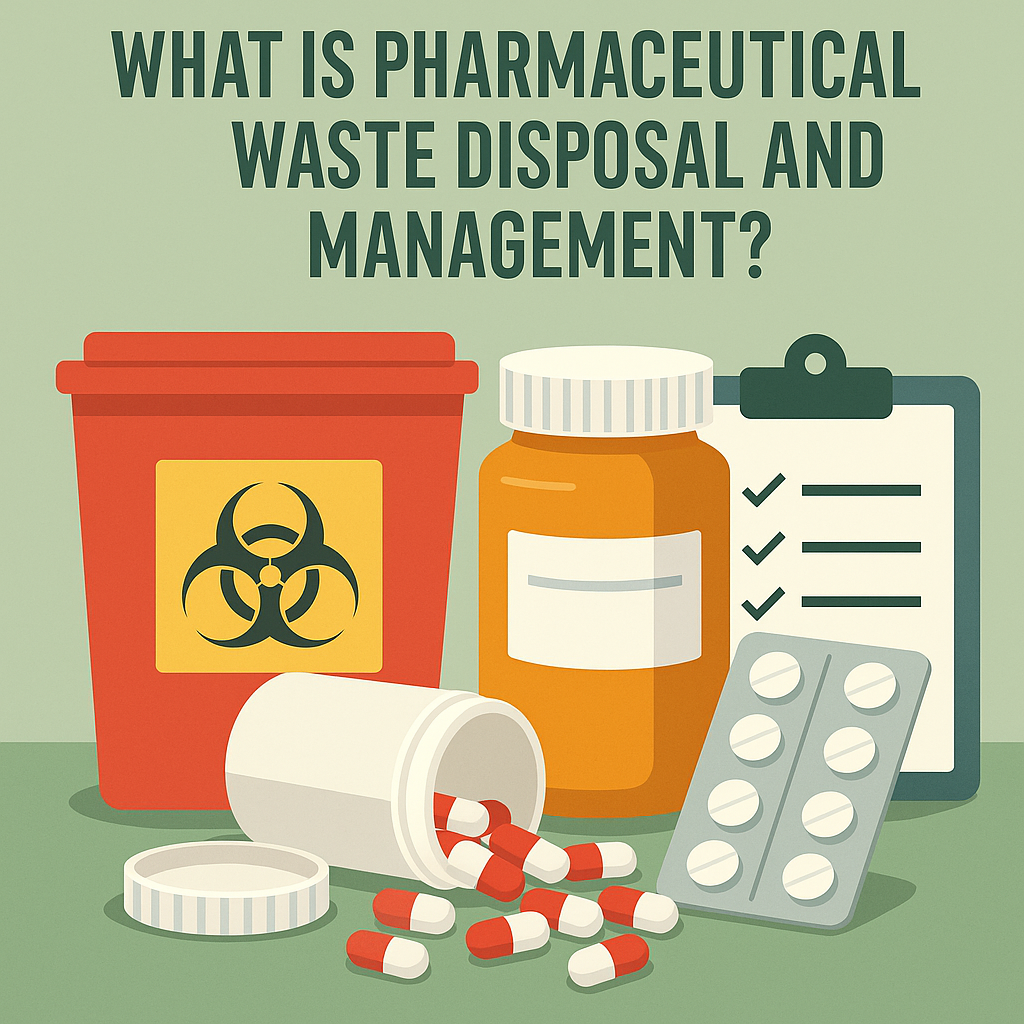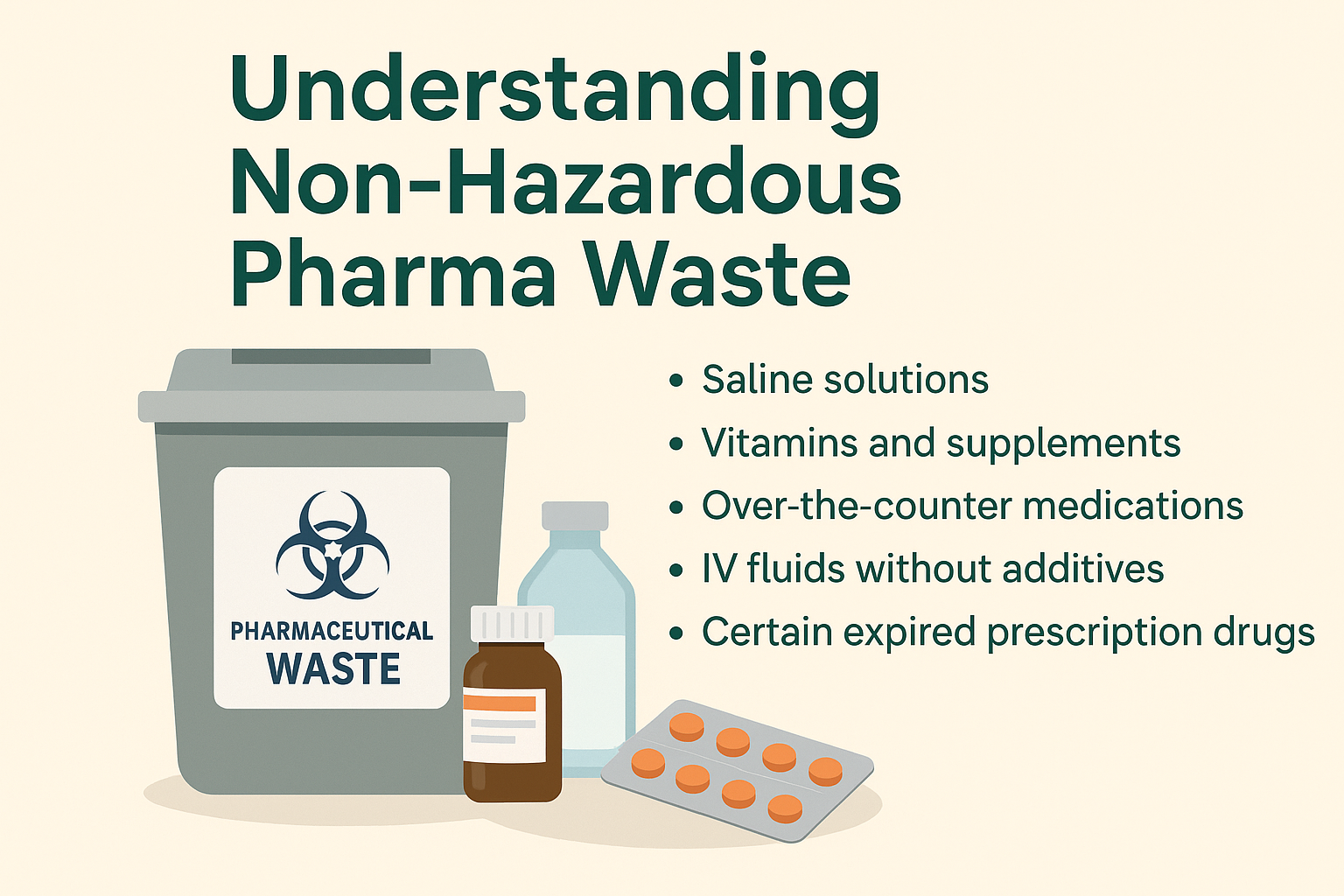What Is Pharmaceutical Waste Disposal and Management?
What Is Pharmaceutical Waste Disposal and Management? A Full Guide for Southeast Healthcare Facilities and Businesses
3 min read
Rick Dovers : May 25, 2025 11:17:30 AM

Hospitals, surgery centers, and medical clinics handle more than just biological waste. Many also generate hazardous waste, like chemotherapy drugs, lab chemicals, solvents, paint, cleaning agents, and mercury-containing devices. If these materials are not disposed of properly, they can harm staff, patients, the environment, and your reputation.
That’s why every facility needs a plan for compliant hazardous waste disposal — and it starts by knowing where and how to dispose of it safely.
Hazardous waste in healthcare includes materials that are:
Examples of hazardous waste generated in healthcare settings include:
These substances must be managed separately from regular medical or biohazard waste.
Unlike household drop-off programs, healthcare organizations must follow federal, state, and local rules — including those set by the EPA, DOT, and RCRA. You’ll need to work with certified providers and use approved hazardous waste disposal locations.
Here are your disposal options:
Partner with a registered medical waste contractor that offers hazardous waste services in your area. These companies provide compliant packaging, labeling, and transport to treatment facilities or landfills.
Some healthcare waste, like certain treated chemical solids or residues, must go to a specialized hazardous waste landfill. These landfills have strict engineering and monitoring requirements.
Many healthcare items — like mercury thermometers, silver from radiology fixers, or batteries — can be recycled. A hazardous recycling center ensures these materials are recovered safely and legally.
During renovations or equipment room touch-ups, healthcare facilities often generate leftover paint, thinners, or coatings. These can’t be tossed in regular trash. Instead, use a provider that offers paint waste recycling to safely reclaim or destroy these materials in accordance with RCRA regulations.
To remain in compliance, healthcare facilities must:
Looking for guidance? The EPA’s generator guidelines are a good place to start.
Choosing a trusted vendor can help your facility meet all of these requirements.
No. Household hazardous waste facilities near me are not certified to accept commercial or institutional waste like that from hospitals or clinics.
Yes. RCRA-listed hazardous chemicals must be separated from controlled substances or medical waste streams. Work with a licensed waste management company for proper segregation.
Your medical waste service provider will help you route applicable waste to a certified hazardous waste landfill that meets EPA and state criteria.
Yes. Items like mercury, batteries, and solvent containers can be processed through a hazardous recycling center near me, reducing landfill use and improving sustainability scores.
At Easy Rx Cycle, we specialize in safe, compliant hazardous waste disposal for healthcare facilities of all sizes. Whether you're managing a hospital system or a small outpatient clinic, we provide:
Looking for hazardous waste disposal near me that puts compliance first? Contact Easy Rx Cycle today to set up a free consultation or get a custom quote for your facility.

What Is Pharmaceutical Waste Disposal and Management? A Full Guide for Southeast Healthcare Facilities and Businesses

What Is a Reverse Distributor? A reverse distributor is a DEA-registered company that helps healthcare facilities, pharmacies, and DEA registrants...

Understanding Non-Hazardous Pharma Waste: A Complete Guide for Healthcare Facilities